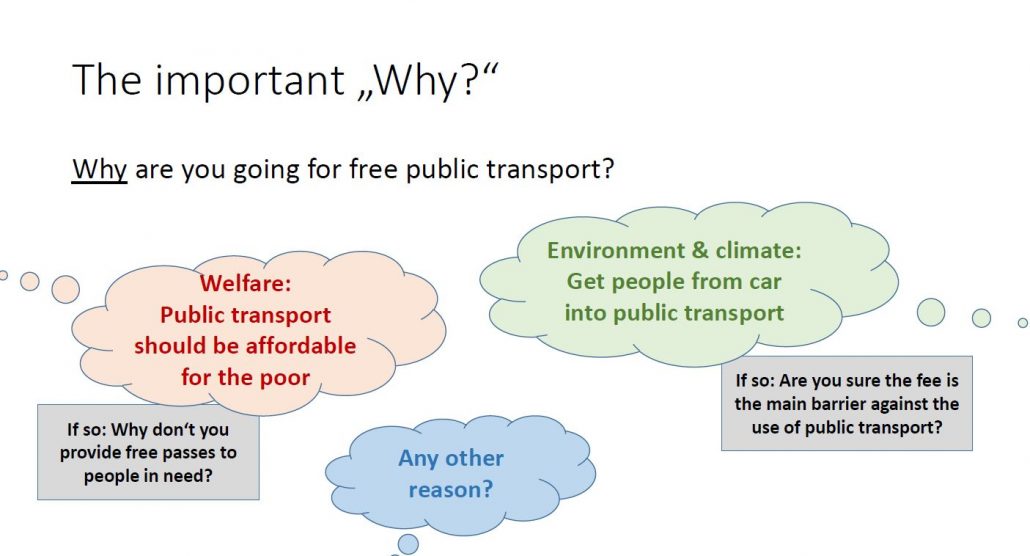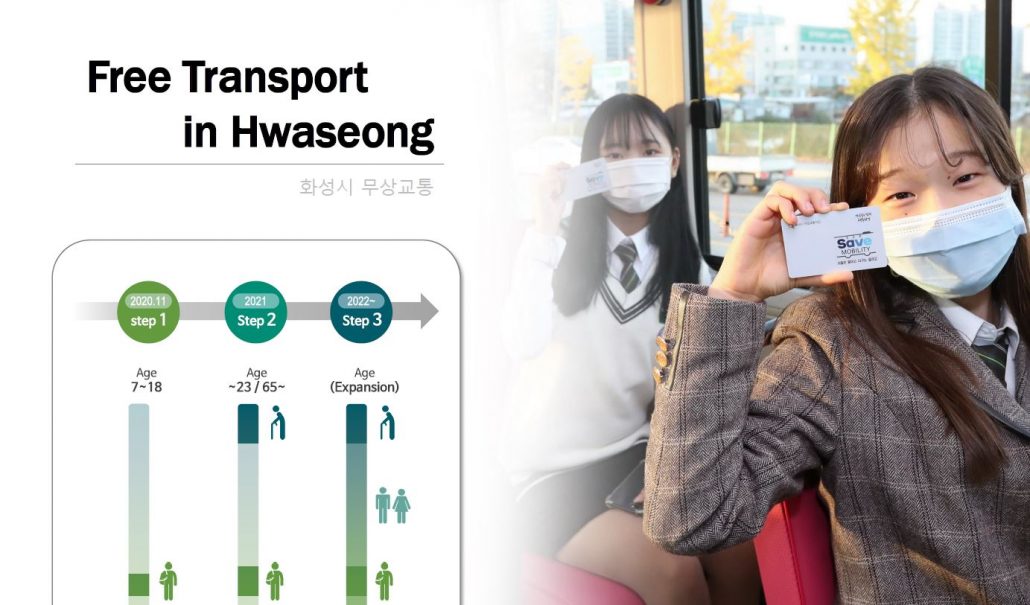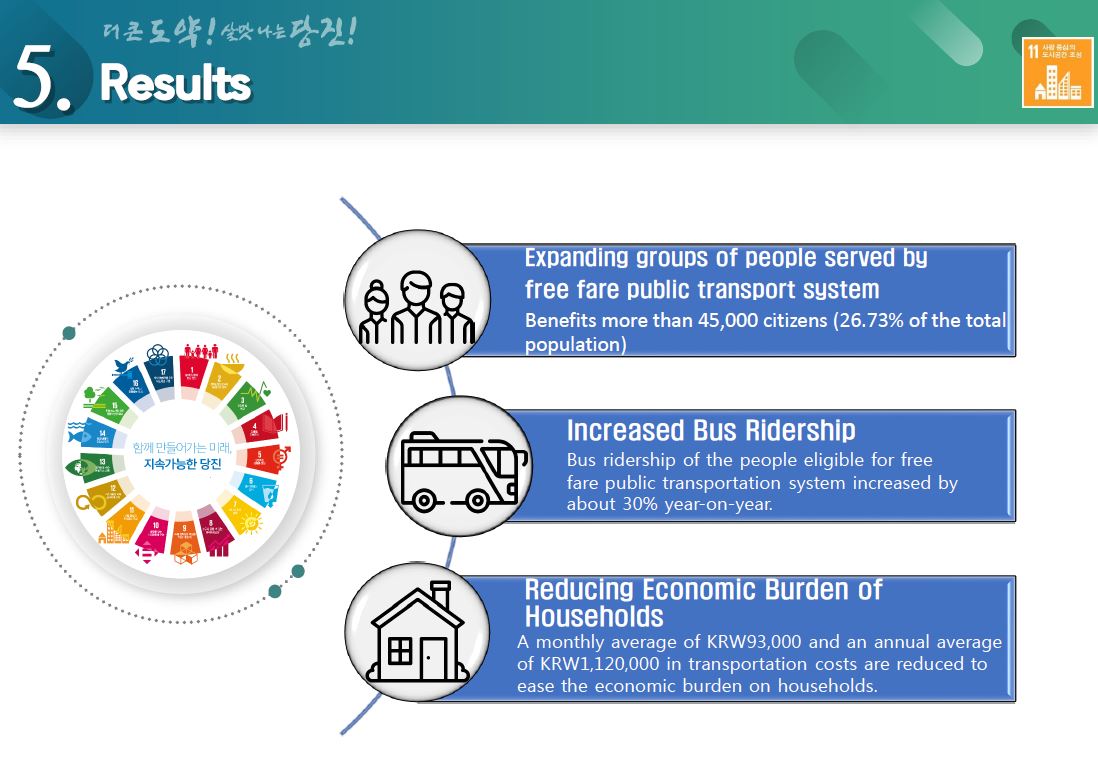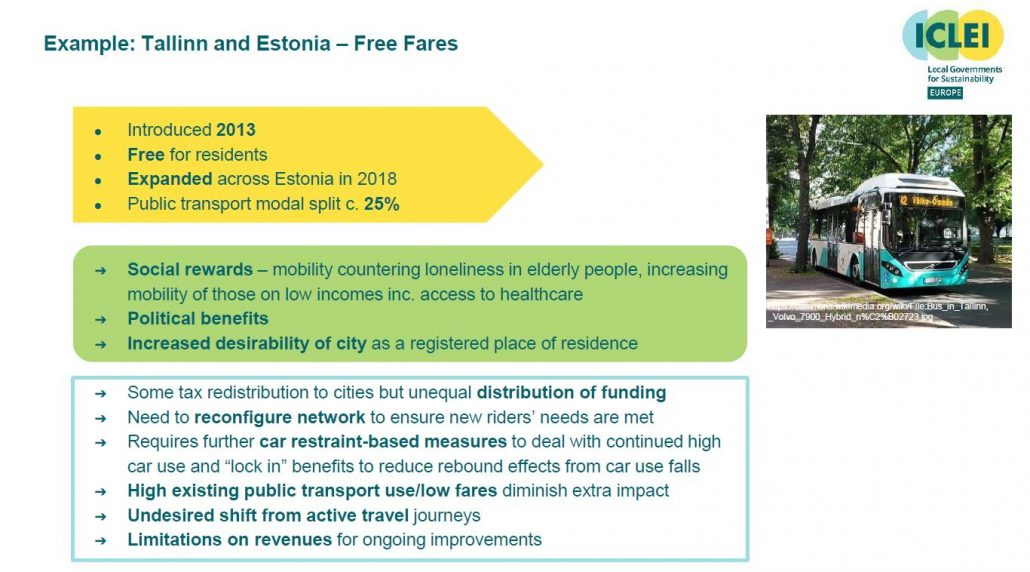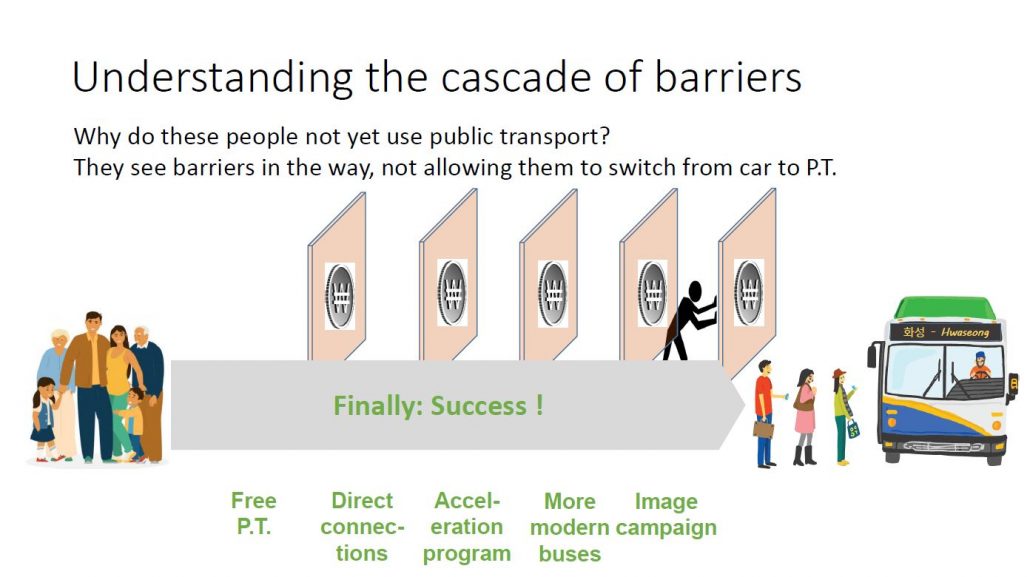By Sina Zhen, Sustainable Mobility Officer, ICLEI World Secretariat
ICLEI Korea and Hwaseong City, in partnership with the EU-Korea Climate Action Project, hosted the EU-Korea Urban Mobility Forum in Hwaseong on April 6, 2021. The theme of the forum was “Transition Towards Net Zero,” with presenters from Korea and the EU sharing innovative policies and programs for sustainable and low-carbon urban transport systems. One of the key topics of multiple speakers’ presentations was the recurring theme of implementing free public transport in cities and why it is essential as a mean of social equity and improving the quality of life for city residents. The forum focused on innovation in public transport and free public transport and how these improve urban life.
Public transport is not a service people should pay for as it is a public good
One of the most important questions raised during the Forum was a question framed by Konrad Otto-Zimmermann, Creative Director of the Urban Idea, where he asked, “Why should we have free public transportation?” “Why?” is an important term any mayor, planners, or city officials have to consider when implementing new measures in urban mobility. Does the city want to reduce its environmental impact by encouraging more people to use public transportation by eliminating fees? Is the city concerned for the social welfare of its residents who may be limited in career opportunities due to access? As Sangchul Kim, Chairman of Policy Committee at Public Transportation Network, pointed out, why don’t we pay for elevators as it is essentially playing the same role as public transit? It is not a service people should pay for as it is a public good. Common themes that were presented at the forum were the need to combat climate change and to increase the wellbeing of cities’ residents, with ambitious policies such as free public transport being considered. Korea and the EU have pledged carbon neutrality by 2050. The Korean and EU plans both aim to leverage green and digital transitions to increase the uptake of zero-emission vehicles, and solutions that will improve connectivity, access, and quality of life in cities. Eliminating fares in public transport is a step toward that vision.



